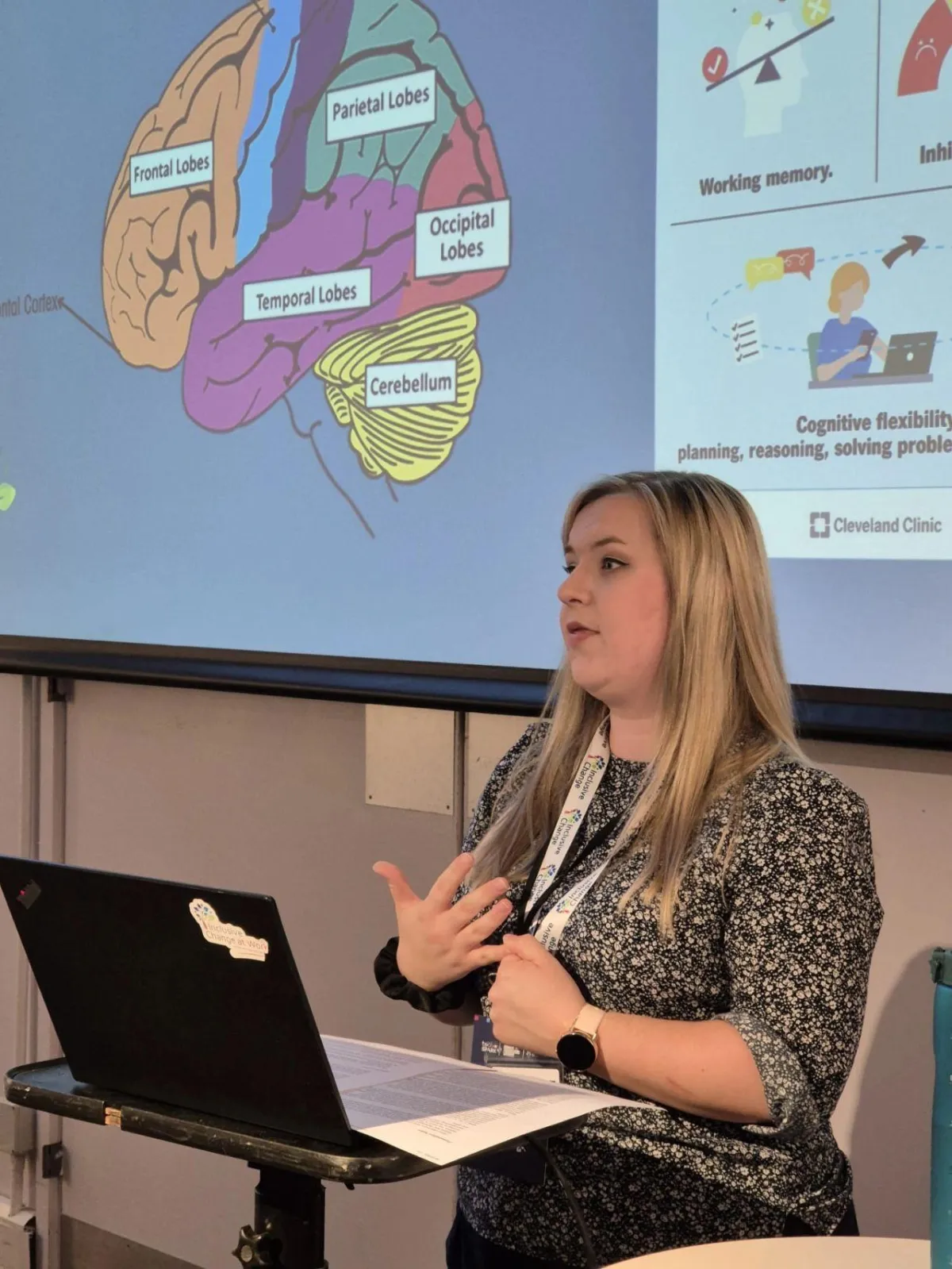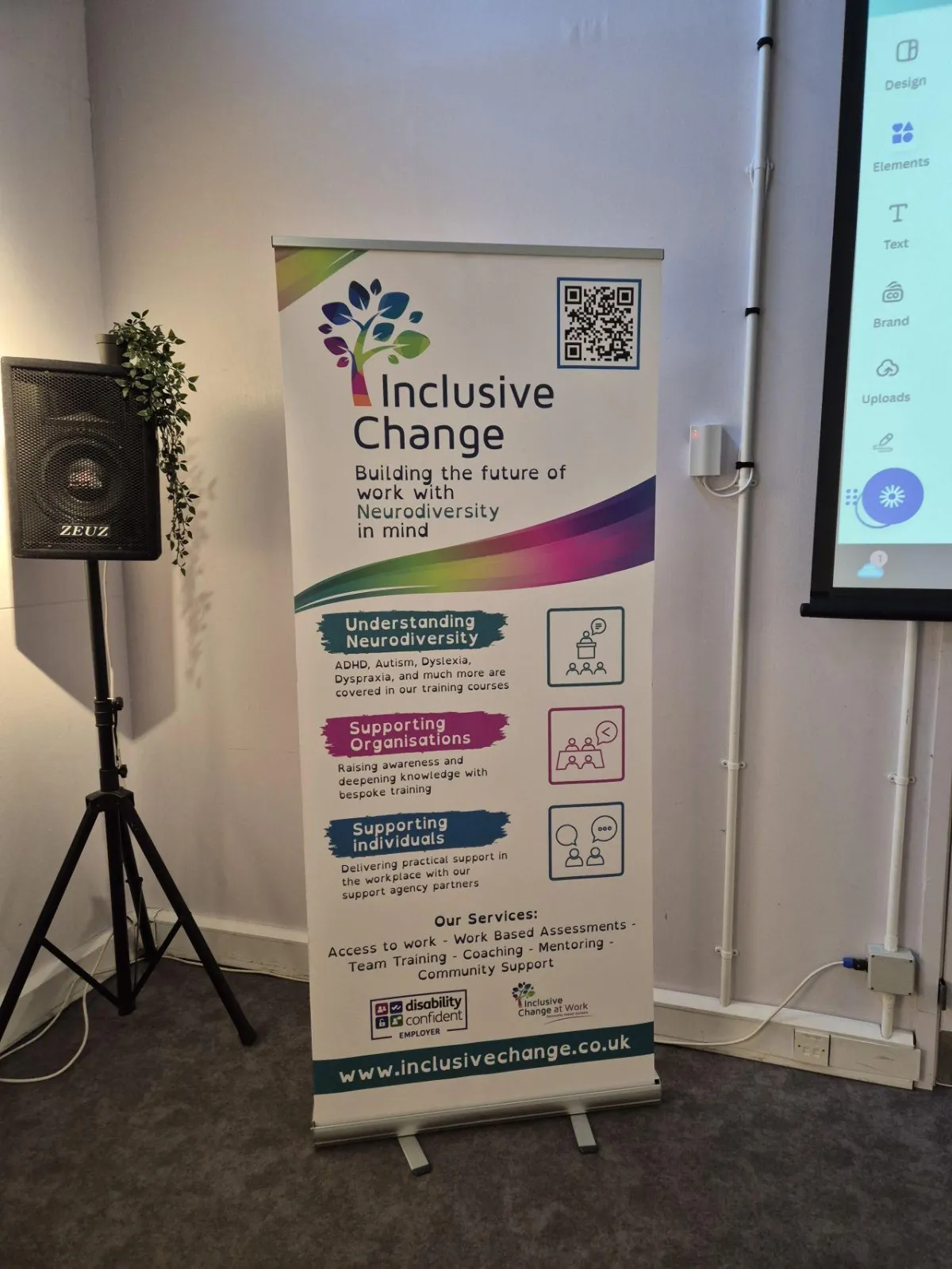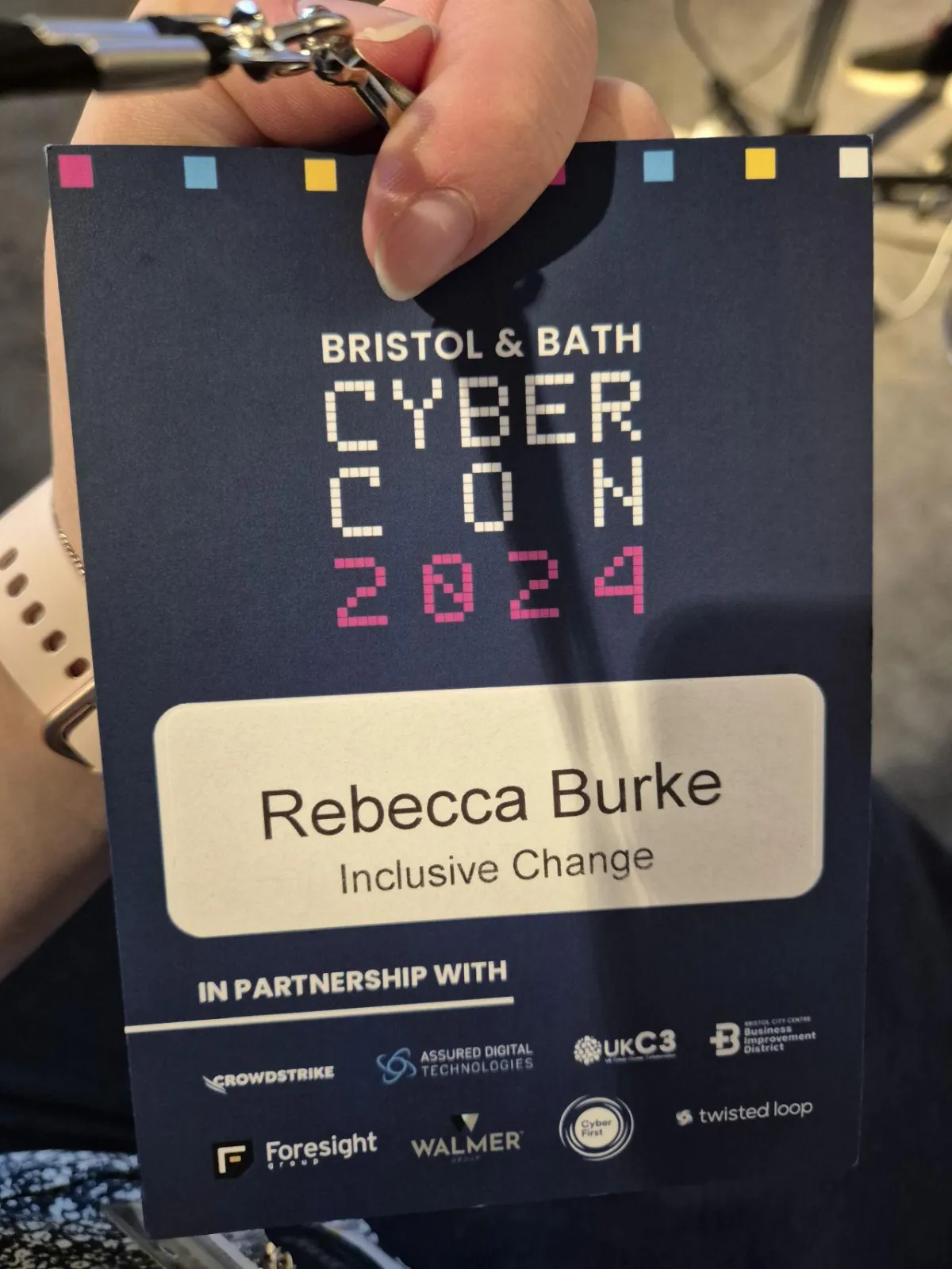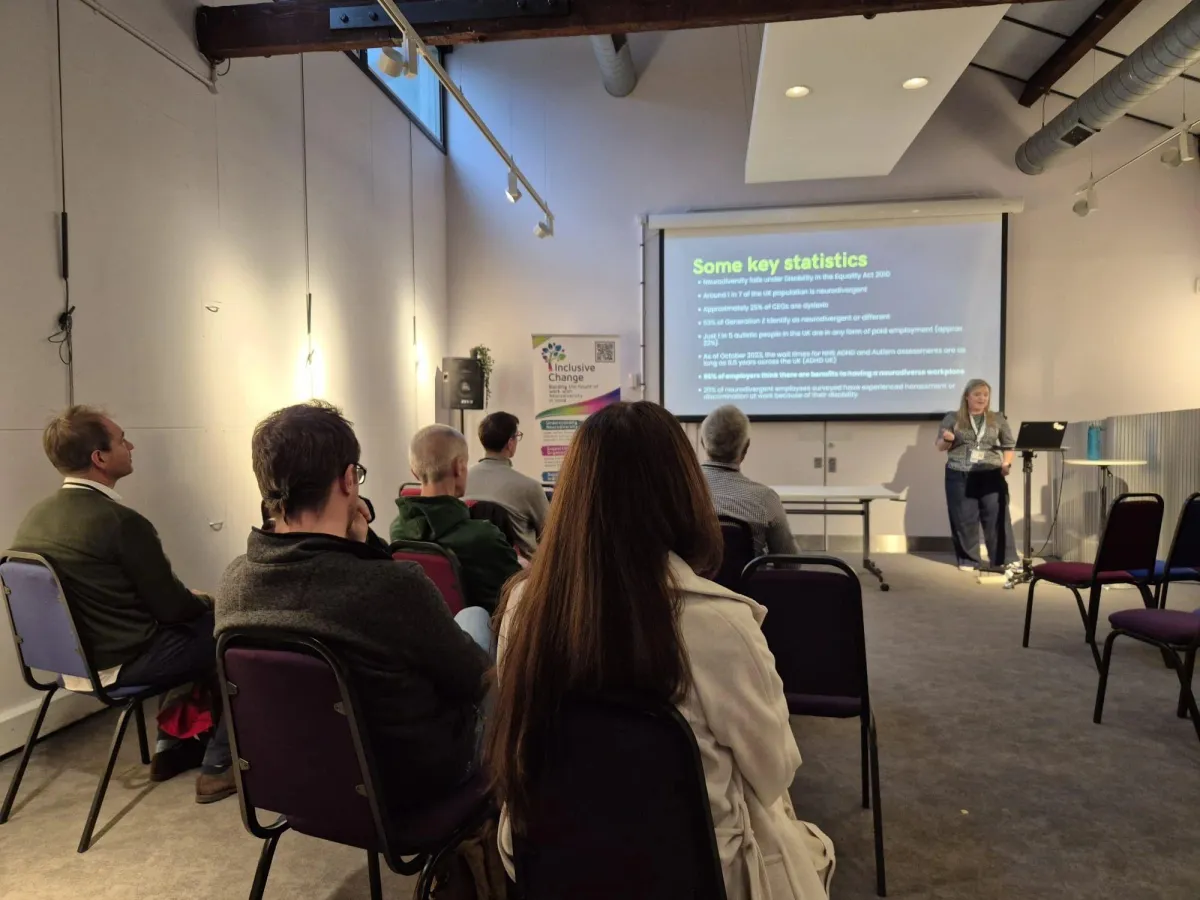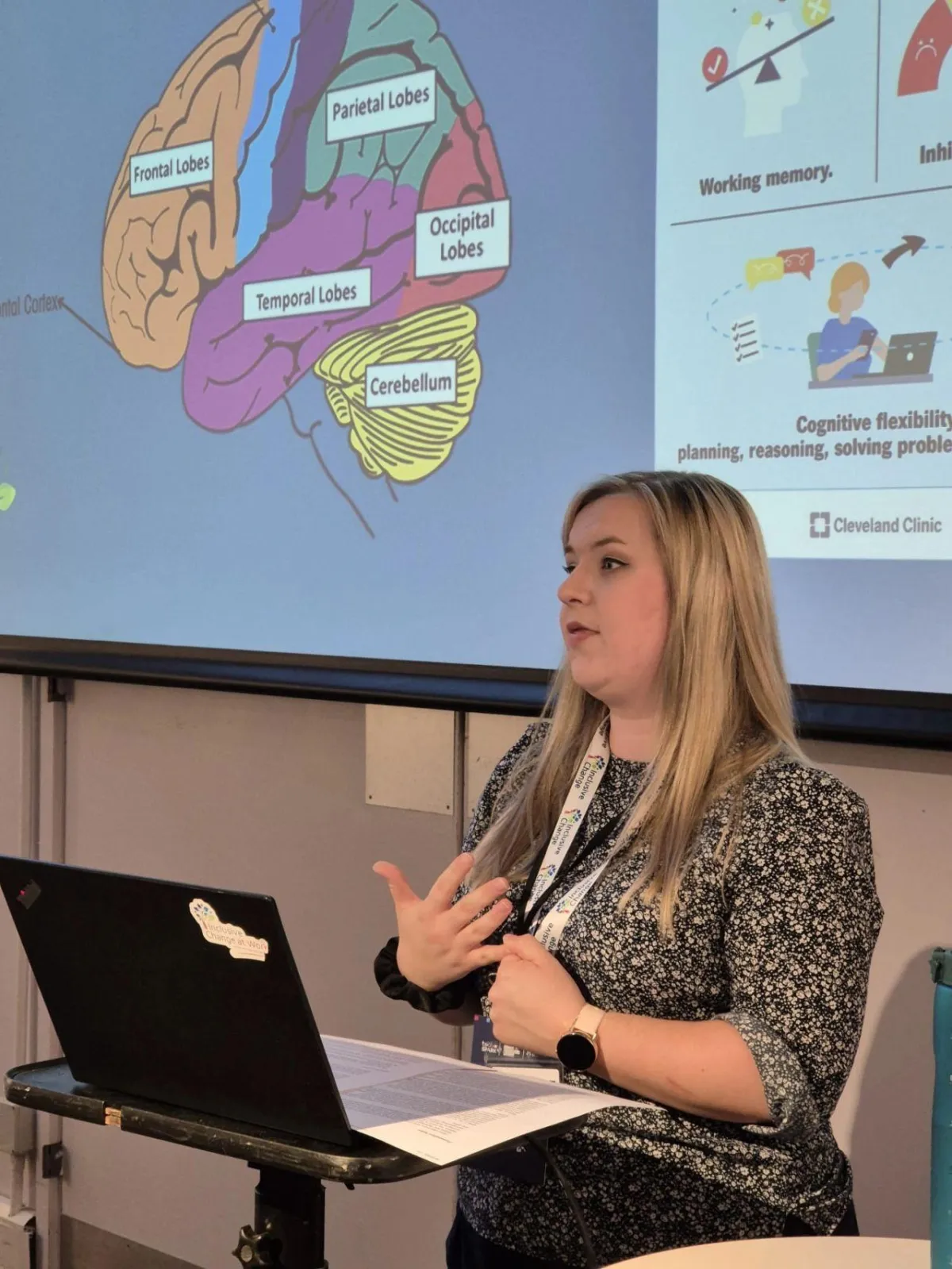
Becca Burke
Speaker
Empowering Neurodiversity in the workplace
Hi, I am Becca!
I'm Becca, a passionate advocate for neurodiversity and understanding ADHD in the workplace. Living with ADHD (combined presentation) myself, I bring a unique blend of professional experiences and personal insights to the conversation about creating inclusive, productive work environments. Equity in the workplace is especially important for us as neurodiverse folk; if given the adjustments and support we need, we can not only survive, but thrive at work.
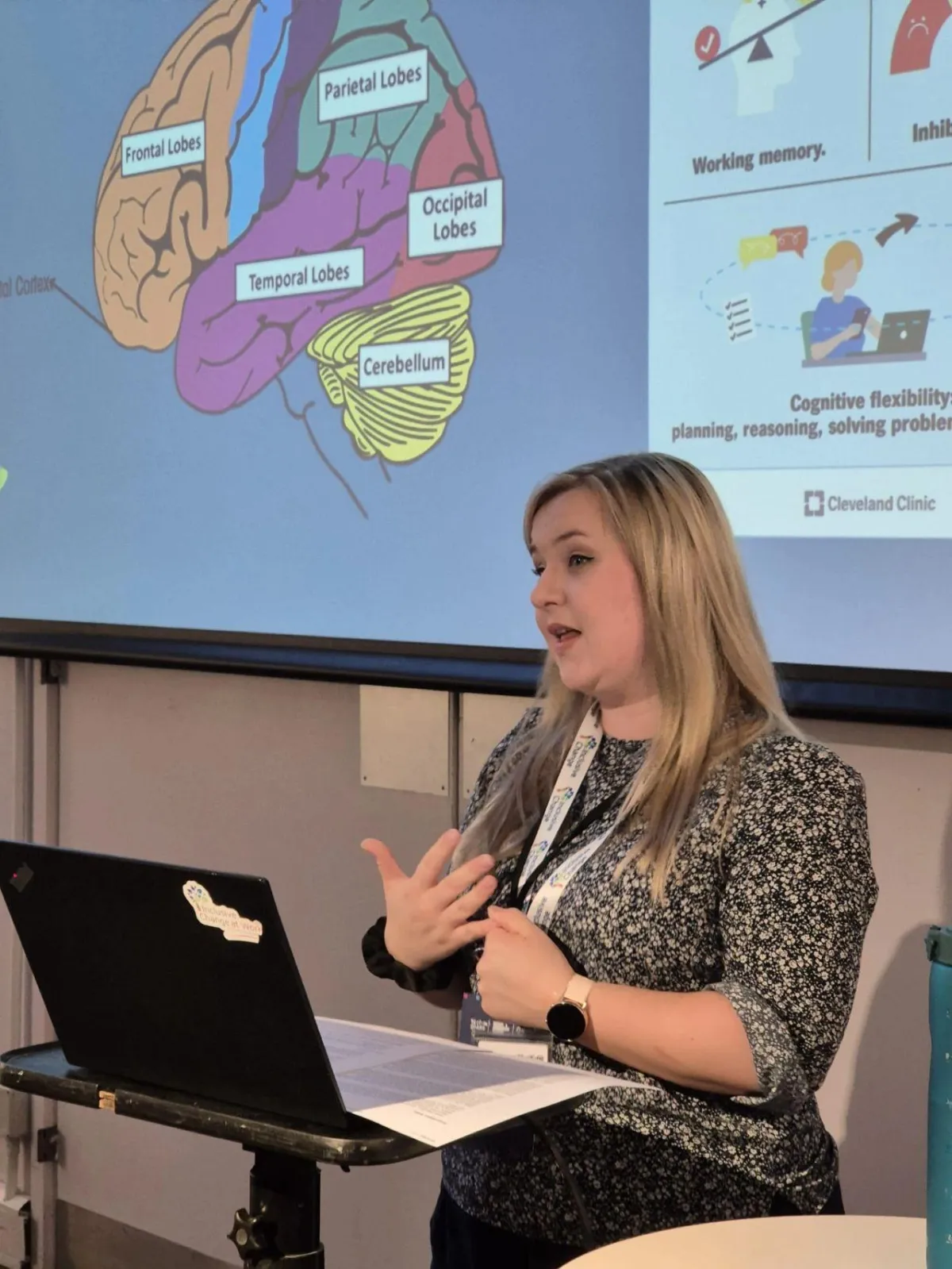
My professional journey
My career path has been varied, in true ADHD style! From my early days in customer relations to roles in sales and account management, I've always excelled in building relationships and understanding people's needs. My time at a FTSE 100 bank gave me a solid foundation for navigating large organisations and the politics of the office environment, and I then had to adapt quickly to the drastic changes of the Covid-19 Pandemic Lockdown. It was during this time, recognising the disruption to my routine, hyperfocusing on work outside of my core hours, and my inability to finish any tasks to completion, that I realised something wasn’t working for my brain.
Throughout my career, I’ve recognised that I was struggling, but never quite understood why. I saw so much of my own journey in the struggles I heard from other neurodiverse people, and I wanted to find a way that I could tangibly make a difference. After my own diagnosis in early 2024, I was inspired to become an ADHD Coach with Leanne Maskell's ADHD Works, and led to me being headhunted for Inclusive Change Ltd as Support Specialist.
My Areas of Expertise
- ADHD awareness and management strategies
- Education and training around ADHD for businesses
- Job coaching neurodivergent clients at work
- Rejection Sensitive Dysphoria awareness/training
- Business process improvement for neurodiverse workforce support
- Working with clients as a neurodiversity educated Virtual Assistant
- Neurodivergent talent recruitment and retention
- ADHD Works Level 1 Coach
Popular Discussion Topics
- Rejection Sensitive Dysphoria (RSD) & ADHD
- ADHD and the menopause
- ADHD screening in prisons
- ADHD and neurodiversity co-occuring traits
- ADHD celebrities
- Current research development
Living with ADHD
- Physiological difference in the brain
- ADHD facts and figures
- Common misconceptions
- Lived experience
- Interactive Q&A
ADHD in the Workplace
- Common challenges and strategies
- Strengths ADHDers bring to the workplace
- Challenges for us in the workplace
- Helpful strategies
- Reasonable Adjustments
- Equality Act 2010 protection
My Speaking Style
I pride myself on being engaging, insightful, and empathetic. My presentations blend personal anecdotes, research-based strategies, and interactive elements that leave audiences both informed and inspired. I like making complex topics accessible, and providing concrete, implementable solutions to common workplace challenges.
Why Choose Me?
At Inclusive Change, we understand your ‘Why,’ and meet you where you are on your journey as a business. Whether you're looking to educate your HR or leadership teams, or provide valuable insights to your entire organisation, I can help. I don’t believe that we as neurodivergent people need to change who we are to succeed; with the right support, education and awareness, we can be ourselves without compromise.
Work with me
Ready to transform your understanding of ADHD in the workplace?
Would you like me to run a workshop for you?
Get in touch using my calendar below.
Read my blog here: https://inclusivechange.co.uk/blog/b/adhd-and-me
Read more
The blog
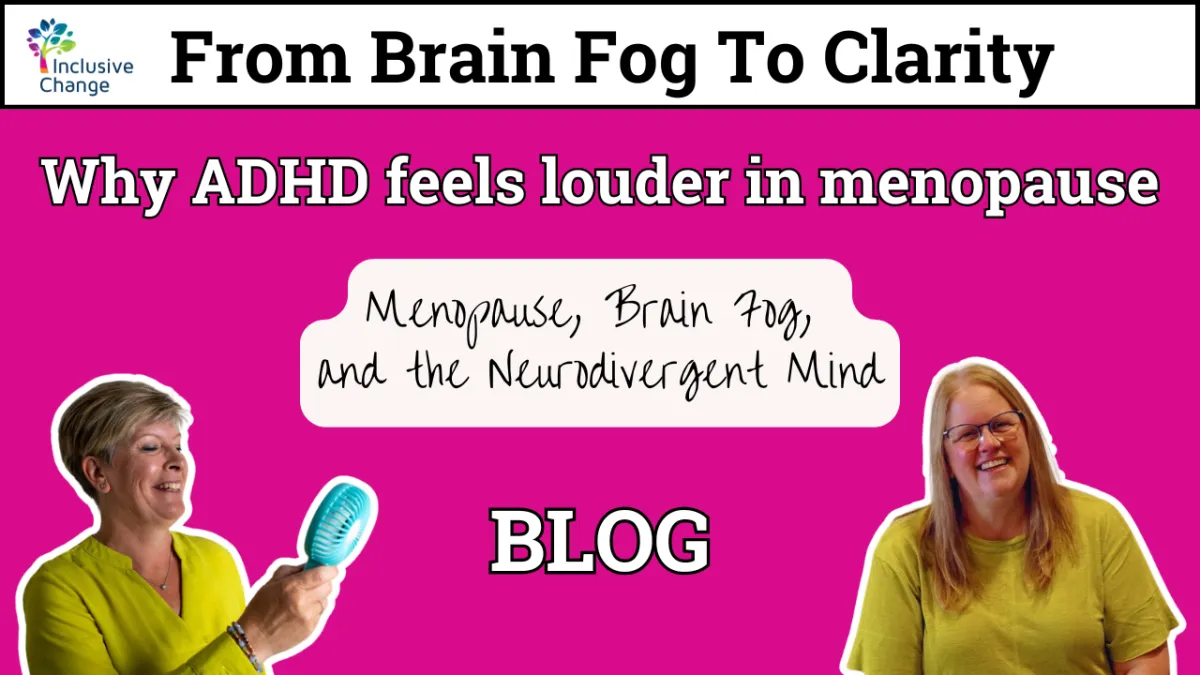
ADHD and Menopause: Why It Feels Louder Now
Understanding the ADHD + Menopause Collision - And What You Can Do About It
You’re standing in the kitchen, staring at three open drawers, your tea’s gone cold, and you’ve just opened Instagram for the fourth time in 10 minutes. You wonder, 'Was I always like this, or is it getting worse?'
If you have ADHD and you’re entering perimenopause or menopause, you’re probably noticing that symptoms you once had 'under control' now feel amplified.
You’re not imagining it.
When ADHD and Hormones Collide
ADHD is already a condition that affects attention, motivation, memory, and executive function. Throw in the hormonal chaos of menopause, and you’ve got what many women describe as a cognitive rollercoaster with no seatbelt.
Why? Because hormones and brain chemistry are deeply connected.
Oestrogen helps regulate dopamine, the very neurotransmitter ADHD brains struggle to manage. As oestrogen levels drop during menopause, so does your brain’s ability to manage dopamine. And with it, go your focus, mood, and motivation.
Common ADHD Symptoms That Get Worse in Menopause
You might have always been the 'disorganised but gets-it-done' type, or someone who’s masked their ADHD for years with systems, routines, or sheer willpower.
Then menopause arrives, and suddenly:
•You forget appointments or entire conversations
•You can’t start simple tasks
•Your focus fractures after five minutes
•You feel more impulsive, emotional, or overwhelmed than ever before
•You bounce between anxiety and burnout in the same afternoon
And here’s the kicker: you can’t tell if it’s your ADHD, menopause, or both.
Spoiler alert: it’s both.
What ADHD Looks Like in Menopausal Women - Hint: It’s Not Always What You Think
If you’re imagining the hyperactive schoolboy stereotype, think again. ADHD in adult women, especially those in menopause, often shows up as:
•Brain fog that feels more like mental static
•Sensory overload that wasn’t there before
•A complete intolerance for multitasking
•Emotional intensity or shutdowns
•Paralysis in the face of simple decisions
It’s a neurological pressure cooker. And you’re still expected to work, parent, clean, care, plan, and 'just get on with it'.
The Mental Load Is Now a Mental Landslide
For many neurodivergent women, menopause is when the wheels finally fall off the invisible cart we’ve been dragging behind us.
The mental load, already sky-high from years of masking and managing ADHD, now feels unbearable. And because so few people talk about how menopause affects neurodivergent brains, many women internalise the struggle.
They think:
“I’m failing.”
“I can’t keep up.”
“I used to be better than this.”
The truth is: your brain hasn’t failed you. It’s signalling that it needs different support now, not more pressure.
What Can Help?
7 Tools That Actually Make a Difference
No fluff. Just things that work (and are realistic when your brain is foggy, your body is tired, and your emotions are doing the hokey pokey).
1. Simplify routines
Keep your systems visible, minimal, and repeatable. Morning routines, meal planning, even outfits, make them as predictable as possible.
2. Time-block your day
Use short blocks (15–30 minutes) for focus time, and buffer zones between tasks. Include breaks by default, not as an afterthought.
3. Set external cues
Your brain might not 'hold' tasks like it used to. Use phone alarms, sticky notes, or even talking timers to prompt action.
4. Move your body gently
You don’t need intense workouts. Just movement, walking, stretching, dancing, helps regulate dopamine and reduce overwhelm.
5. Speak your overwhelm out loud
Whether it’s to a coach, a friend, or into your voice notes, naming what’s hard defuses its power.
6. Honour your sensory needs
Avoid noise where possible, dim the lights, wear comfy clothes. Menopause can crank your sensory dials, so adjust your environment accordingly.
7. Adjust your expectations
You’re not a machine. Rest is not a luxury. Capacity shifts daily. What you can do today is enough.
“It’s Like I’m Meeting My Brain for the First Time”
That’s what one woman in our community said recently. And it’s true, menopause forces many neurodivergent women to confront the ways we’ve been over-functioning, over-masking, and over-explaining for decades.
It’s disorienting, but it can also be empowering.
Because for the first time, you might start making choices based on what you actually need. Not what looks good. Not what keeps you performing. But what helps you feel safe, supported, and like yourself again.
You’re Not Lazy. You’re Recalibrating.
The world wasn’t built for neurodivergent women in midlife. But you’re building your own way forward, and you’re not doing it alone.
If this post spoke to something deep in your bones (or your brain), it’s because we see you. And that’s exactly why we created the From Brain Fog to Clarity workshop.
It’s a 90-minute, zero-fluff, neurodivergent-safe space where we unpack what’s happening in your brain and body, and give you real, doable ways to move through it.
Join us here:
https://inclusivechange.co.uk/brain-fog-to-clarity-workshop
Some of the Companies Inclusive Change Have Worked With So Far


Column Header
Lorem ipsum dolor sit amet consecetuer lorem ipsum
Organically grow the holistic world view of disruptive innovation
At the end of the day, going forward, a new normal that has evolved
Column Header
Lorem ipsum dolor sit amet consecetuer lorem ipsum
Organically grow the holistic world view of disruptive innovation
At the end of the day, going forward, a new normal that has evolved
Column Header
Lorem ipsum dolor sit amet consecetuer lorem ipsum
Organically grow the holistic world view of disruptive innovation
At the end of the day, going forward, a new normal that has evolved
Inclusive Change Ltd
The Brightwell, Bradbury House
Wheatfield Drive
Bradley Stoke, Bristol
BS329DB
Copyright 2025 - Inclusive Change Ltd
Companies House: 12412464
VAT NO: 352 1564 17
ICO Reg: ZB081779
UK Register of Learning Providers: 10090652

